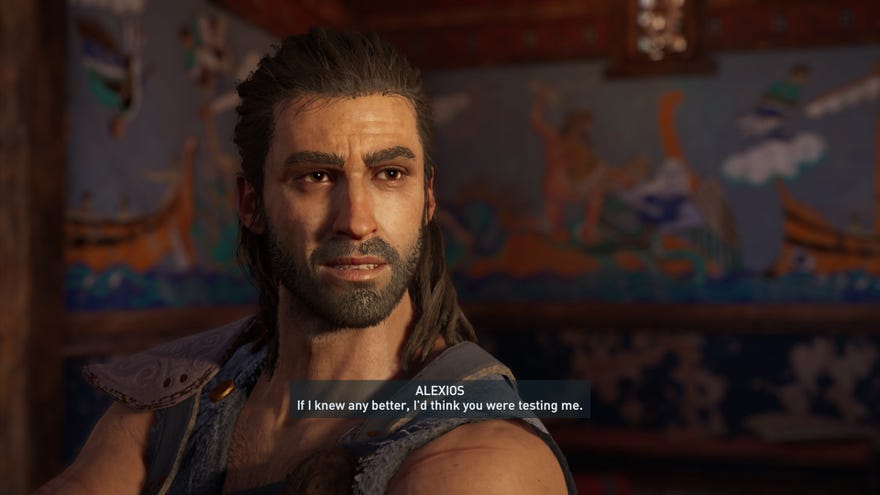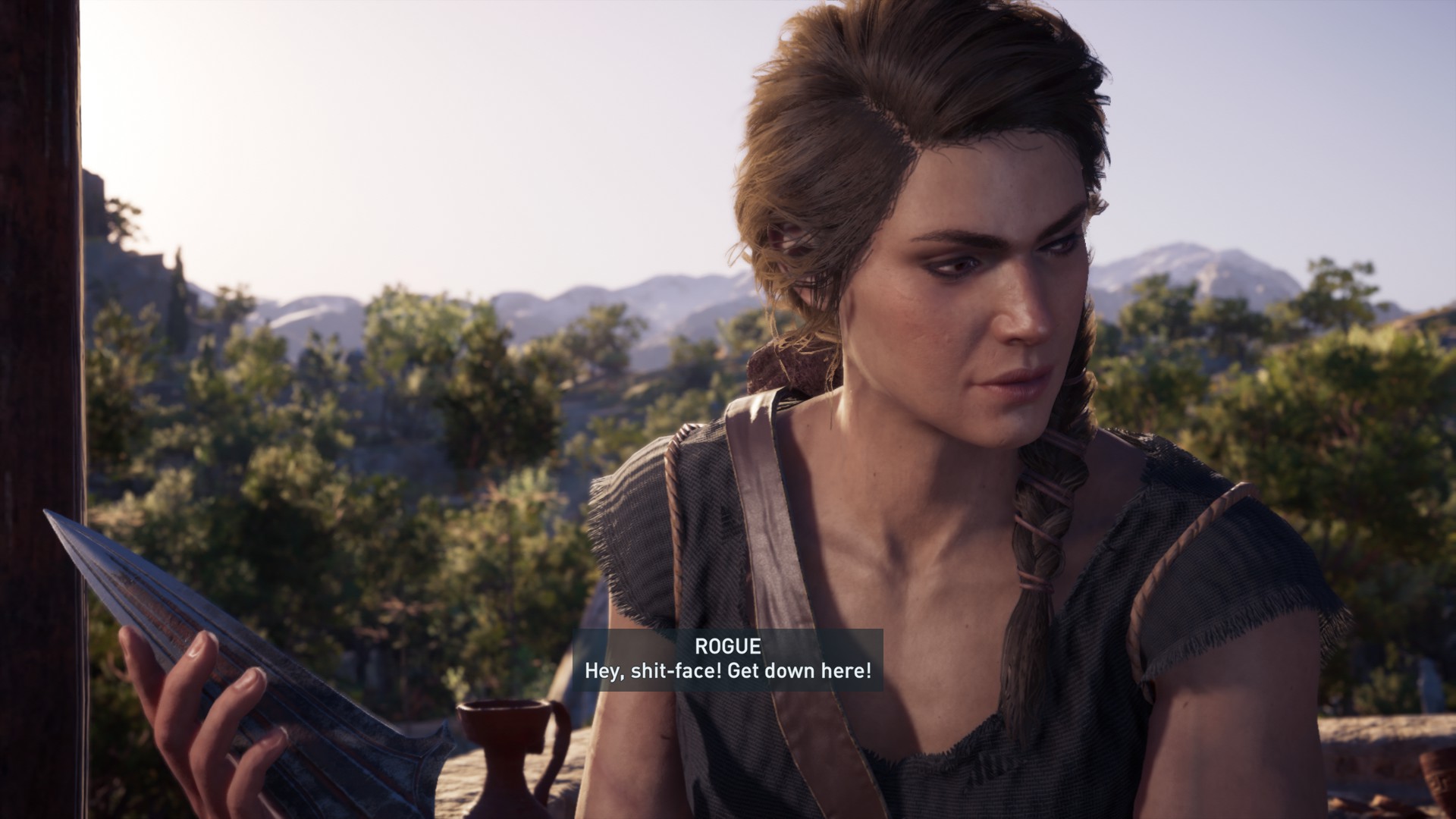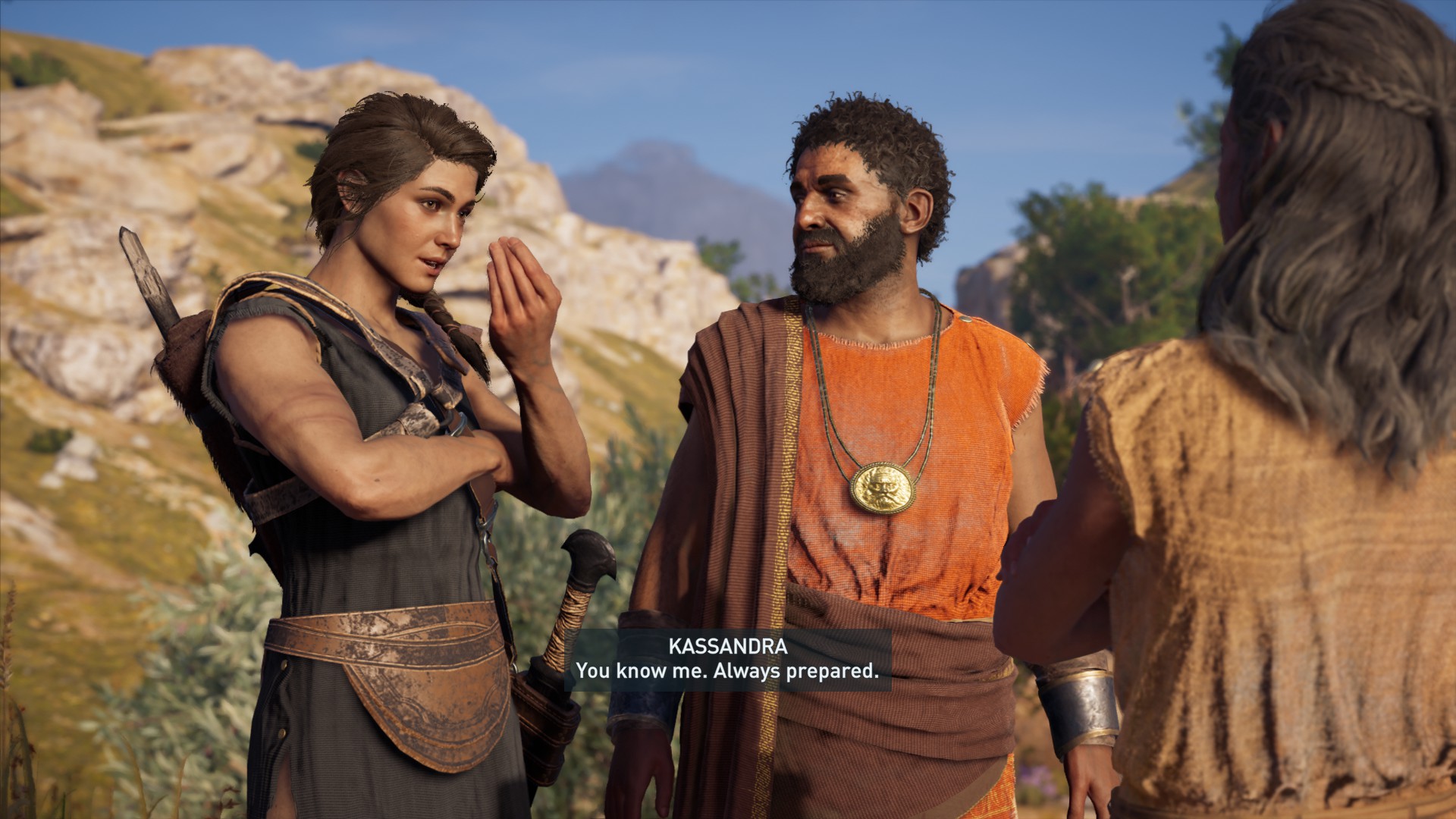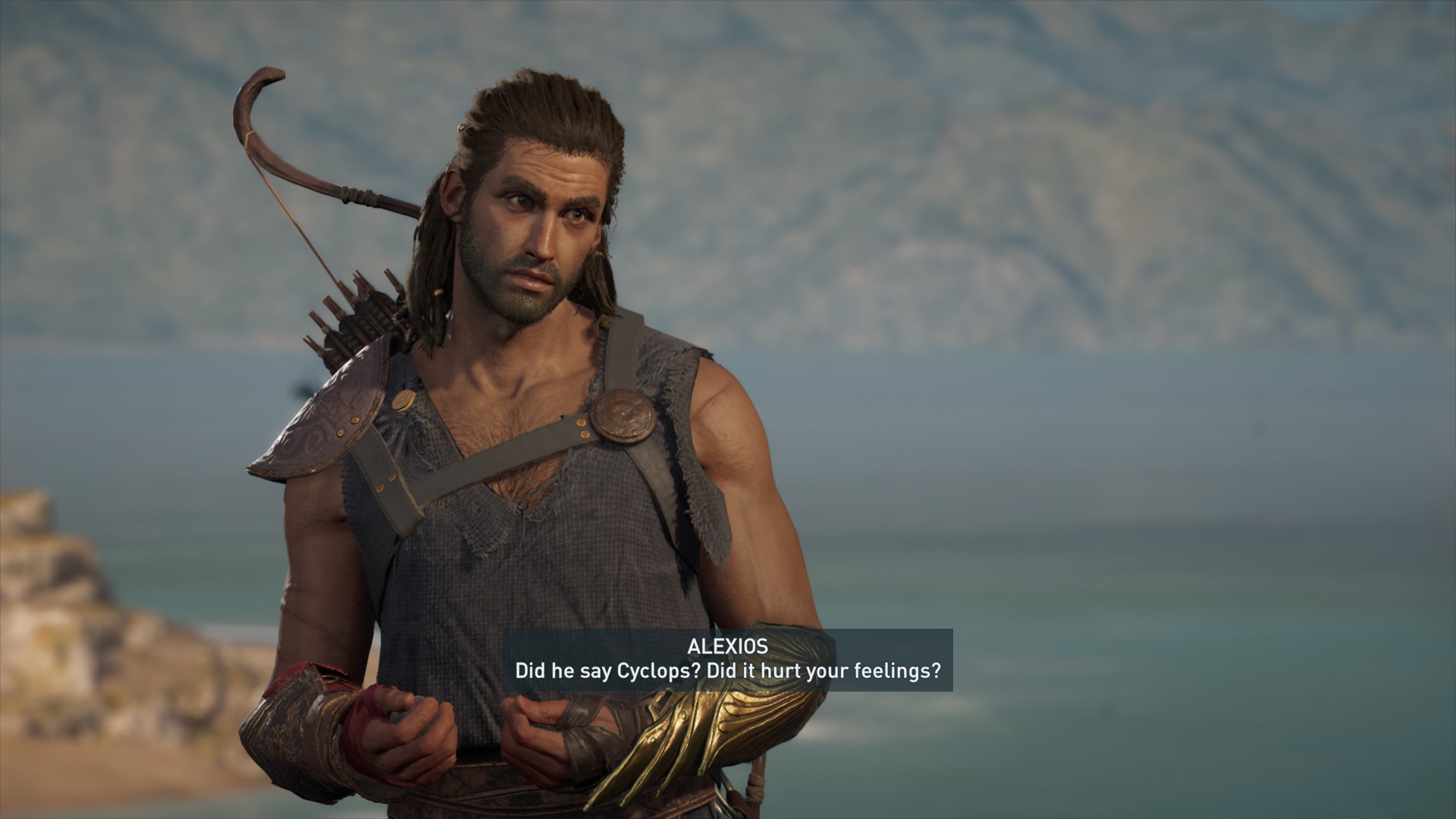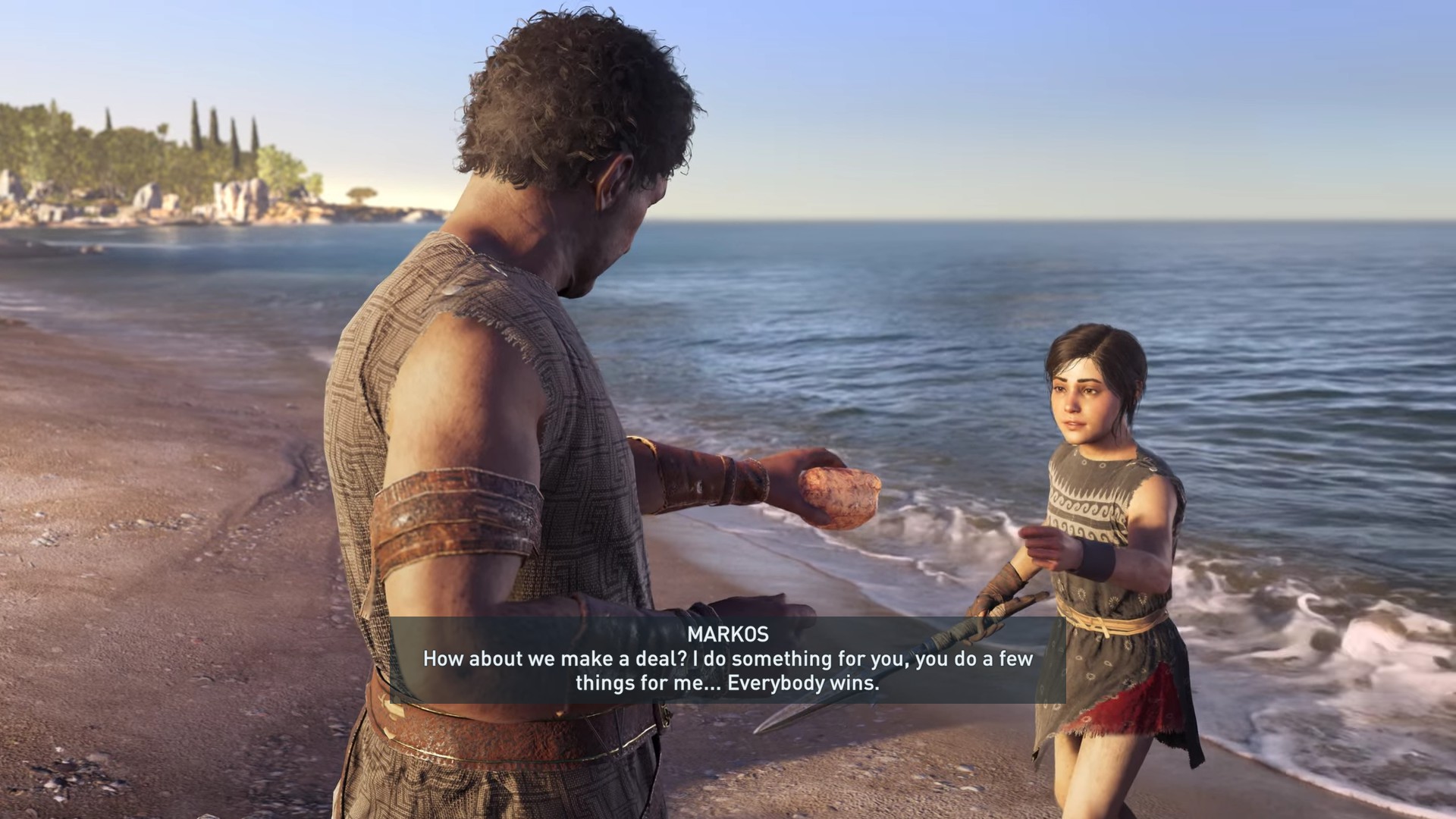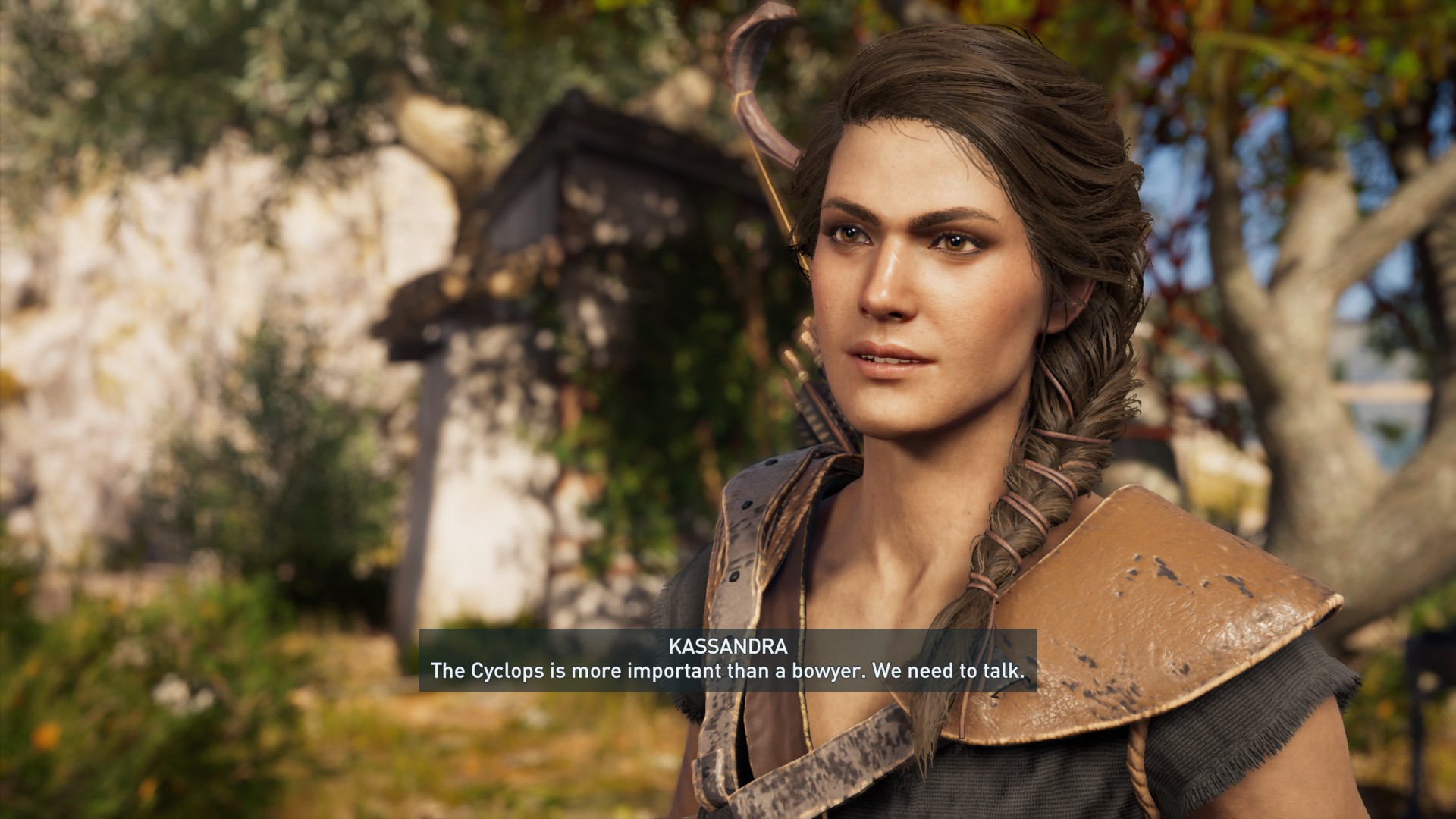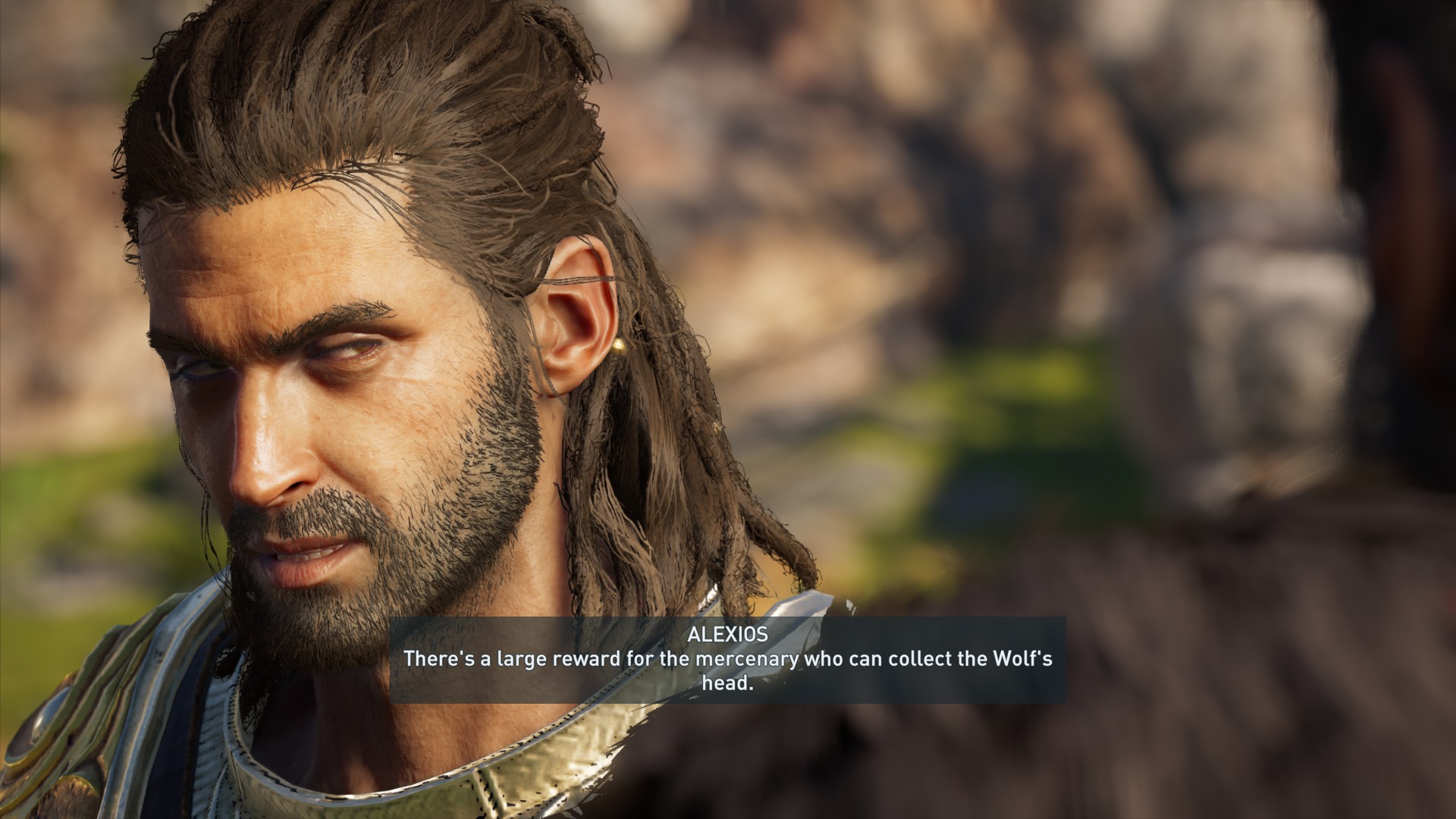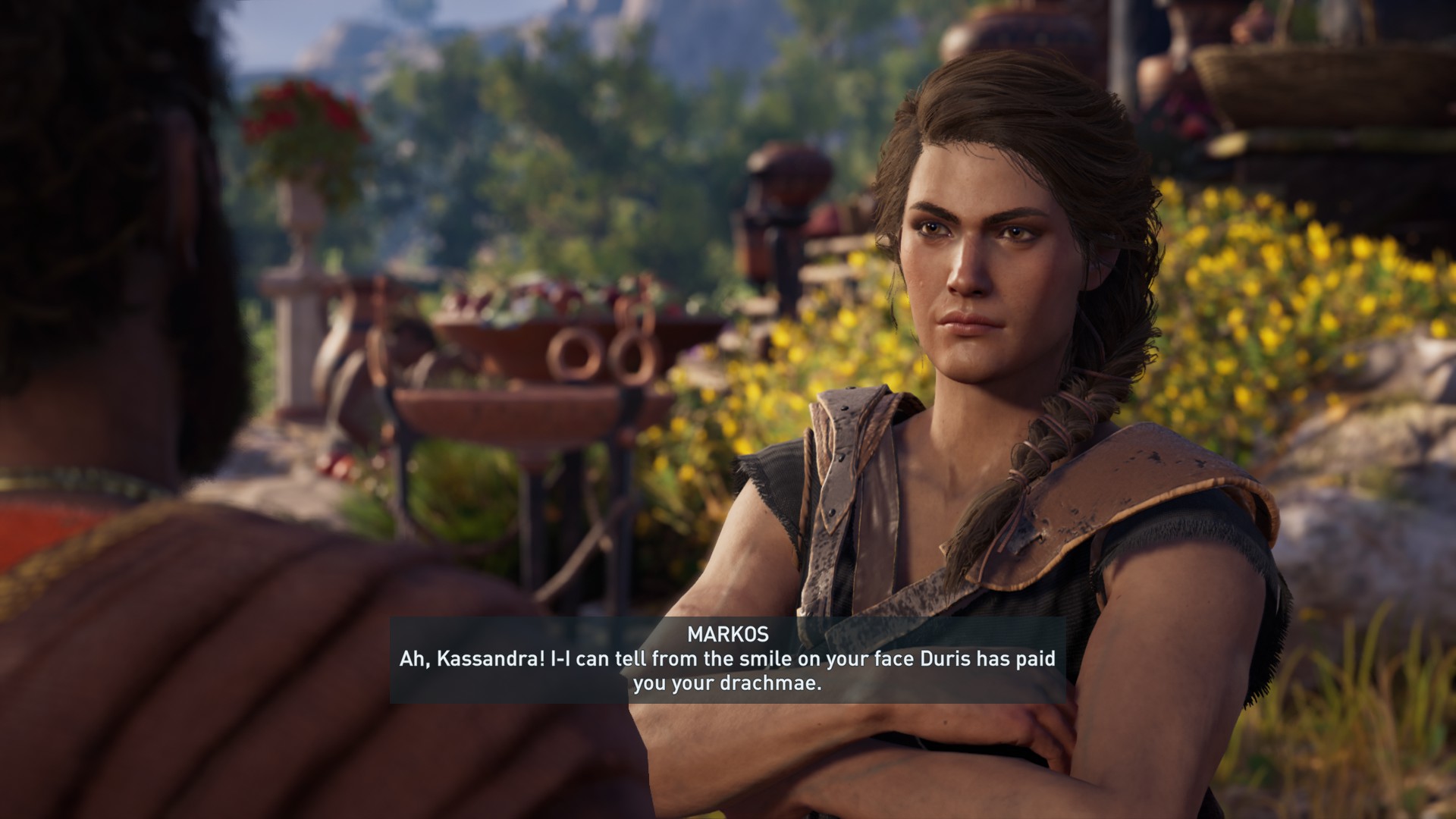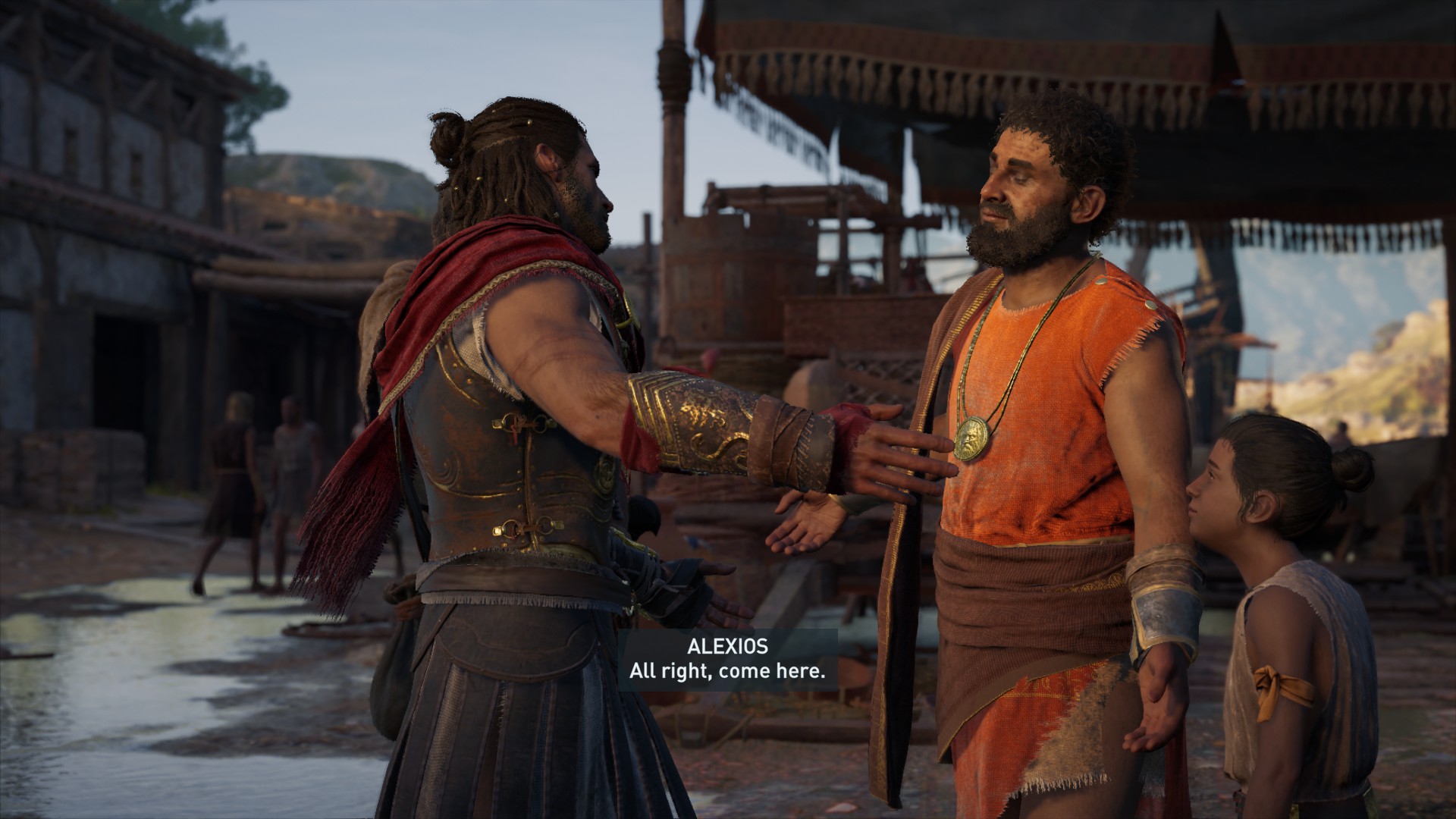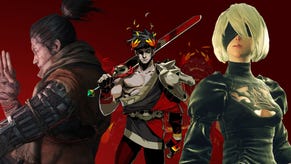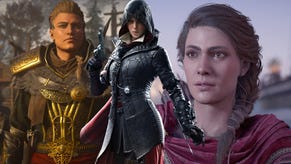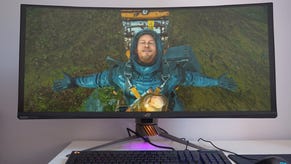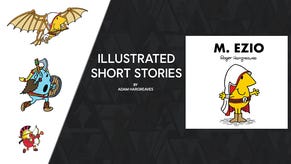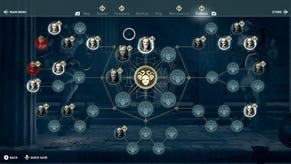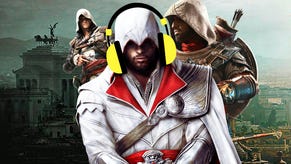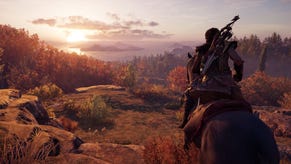The subtle differences between Kassandra and Alexios in Assassin's Creed Odyssey
Sibling similarities
The argument raged for millennia. Titans clashed on an appropriately dramatic field, with internet armies raging between their massive feet. “Will you choose to play as Alexios or Kassandra?” my local grocer cried, eyes wild with suspicion. "They’re both the same!" screamed a man set aflame. “Yeah, I’m picking Kassandra,” said literally everyone else.
However, after playing through the three-hour opening of Assassin’s Creed Odyssey nearly seven times for you (and continuing to play over a dozen hours on a separate save) I can confirm that both Kassandra and Alexios are distinct, compelling, and valid protagonists. Choosing between Alexios or Kassandra colours the events of Odyssey in a multitude of ways, even moreso than FemShep and BroShep of the Mass Effect trilogy. Ways I am now going to describe, so that I can clear some of the several thousand screenshots on my hard drive.
Odyssey opens with your mercenary contemplating their birthright (the mythical, broken spear of Leonidas) just before being insulted by the underlings of the local crime boss, to whom you owe a great deal of money. This sequence reveals the first of many elements separating the two playable characters. Motion-captured sequences have different animations for the protagonists, adding up to hundreds or even thousands of subtle differences over the course of the game. Alexios’ eyes widen as he whips his head around at the initial insult, whereas Kassandra flicks up her eyes, and stops for a moment before turning around and confronting the threat.
It’s difficult to tell what might be a motion-captured or traditionally-animated scene as well. Gestures that seem naturalistic, like the lowering of your character’s head as they deliver bad news to a child, or the casual wave of acceptance as they play along with the ruse of bumbling father-figure Markos, are repeated perfectly across the two heroes.
Even in scenarios that are definitely motion-captured changes can be hard to see. In the game’s opening, just after our mercenary gets punched in the face, Alexios pumps his fist slightly harder while shouting “Malaka”. Yet later scenes combine motion-capture with handcrafted, repeated animations, such as in the mercenary’s taunting of the aforementioned crime boss, the Cyclops. As the Cyclops attempts to drown Barnabas, the man who will soon be your first mate, you toss around the crime lord’s eye and mockingly ask if Barnabas hurt his feelings. Then, you stick his missing eye into the bum of a conveniently-located goat, as you do.
The performances (both facial and physical) of the two characters are unique up until they grab the goat. A camera cut brings us to an animation of the characters gesturing and grabbing the goat, and then snaps back to unique motion-captured performances as the bum-stickage occurs. The result is an experience where it’s nearly impossible to tell the difference between when a character is animated, or inhabited. Though it’s worth noting that animators still put in significant work to engineer a motion-captured performance, after generations of seeing a clear division between these styles, the jump in quality is almost jarring.
Combat animations seem similar, if somewhat tweaked. Executions are identical. However, no matter which protagonist you choose, each character will give you a heaping dose of underwear-clad crotch while swimming. If you’re into that. I won’t judge.
While bearing different scars (perhaps suggesting different life experiences after childhood), the origin stories for Alexios and Kassandra are the same. Raised by spartan general Nikolaos, you spar with him in the yard next to your home. Your mother emerges from the house and calls you inside for dinner, while presenting your sibling: the swaddled version of whichever character you didn’t choose.
It’s a cute little family...
Until daddy Nikolaos throws you off a cliff.
Markos finds you after you escape from the scene and wash up on the distant beach of Kephellonia, taking you under his slightly incompetent and unscrupulous wing.
Speaking of similarities: you might notice that I’ve been referring to Alexios and Kassandra as “your mercenary,” “the mercenary,” or simply ”you”. This mirrors the approach taken by the game itself. Whether you play as Alexios or Kassandra, you’re playing through (and choosing options from) the same script. Characters don’t use gendered terms, instead calling you “misthios” (the Greek word for mercenary), “mercenary,” “you,” or sometimes referring to your character by name. It avoids doubling the voice work to accommodate your character’s gender, and ensures consistency, but feels unusual once you take note of it. This is particularly noticeable when you encounter a potent elderly woman near the Oracle of Delphi, who praises your character’s potential sexual vigor in noticeably generic terms before asking you to gather the ingredients she needs to make her husband Peloponnesian Viagra.
Dialogue can change, however, based off of both implicit and explicit decisions. Even early in the game, the script acknowledges that you might not have completed the bandit-clearing sidequest you promised to conduct for a bowyer before helping Markos with his next scheme.
It’s telling that it took me so long to identify that the script is the same regardless of character. A phenomena entirely due to the fantastic performances of Alexios actor Michael Antonakos, and Kassandra actor Melissanthi Mahut.
Alexios can be off-putting at first. He almost sounds like the caricature of a hero. Quite ‘HARK, MILADY, THY CHAMPION IS HERE!’ However, the more you listen to him, the more apparent the nuances in this performance become. He projects strength, vulnerability, and even awkwardness, attacking the machismo of the Cyclops and encouraging would-be adventurers to find the journey that makes them happy, not just the one that brings them glory. When needed, Alexios communicates compassion as strongly as he does threats, and he communicates threats very well.
Kassandra is ready to leave Kephellonia, the starting island, the moment she gets a chance. This is apparent in the way she speaks about the island, and to its citizens. A combination of weariness and mirth fills her voice. Familiarity breeding predictability, and knowledge of human nature. Once exposed to the adventure of the wider world, Kassandra’s incisive and passionate outlook means she has little time for trivialities. When the child Phoibe is taken, Kassandra swats past Markos’ protests, barking for direction and information, ready to rush to the scene. In summation, Kassandra is not taking any of your shit, ever. However, if you need help, she’ll be there.
No sequence illustrates the subtle differences between the two main characters better than your parting from Markos, the man who took you in as a child and set you on the path of a mercenary. When you rescue Barnabas, your first mate, you also gain access to a ship. You can leave the island. Markos rushes to the port just as you’re about to depart, stunned that you’d leave without saying goodbye. Kassandra greets him curtly. Alexios... slightly less so. His booming voice softens slightly. Markos asks for a hug.
If you choose to hug Markos as Kassandra, her deep sigh and clipped sentences indicate that, for her, it’s a concession to Markos. If you choose to hug Markos as Alexios, you get the sense that this is actually a concession for Alexios himself. Permission to (briefly) mourn the awful island, and silly, silly man who raised him.
It’s safe to say that a staggering amount of work went into not only creating two badass protagonists, but allowing them each a slightly different presence within the world. However, whichever one you pick, you’ll find the same script, solid combat, smooth traversal, and a hell of an odyssey stretching before you.
Please don’t make me play through the opening again.
